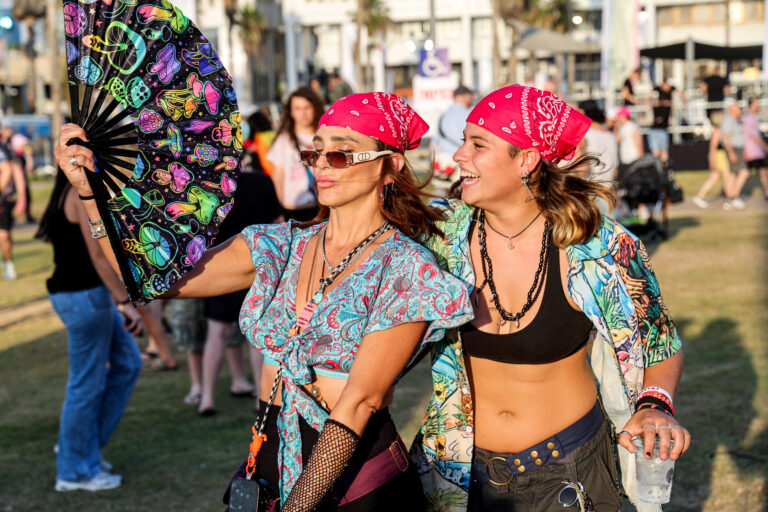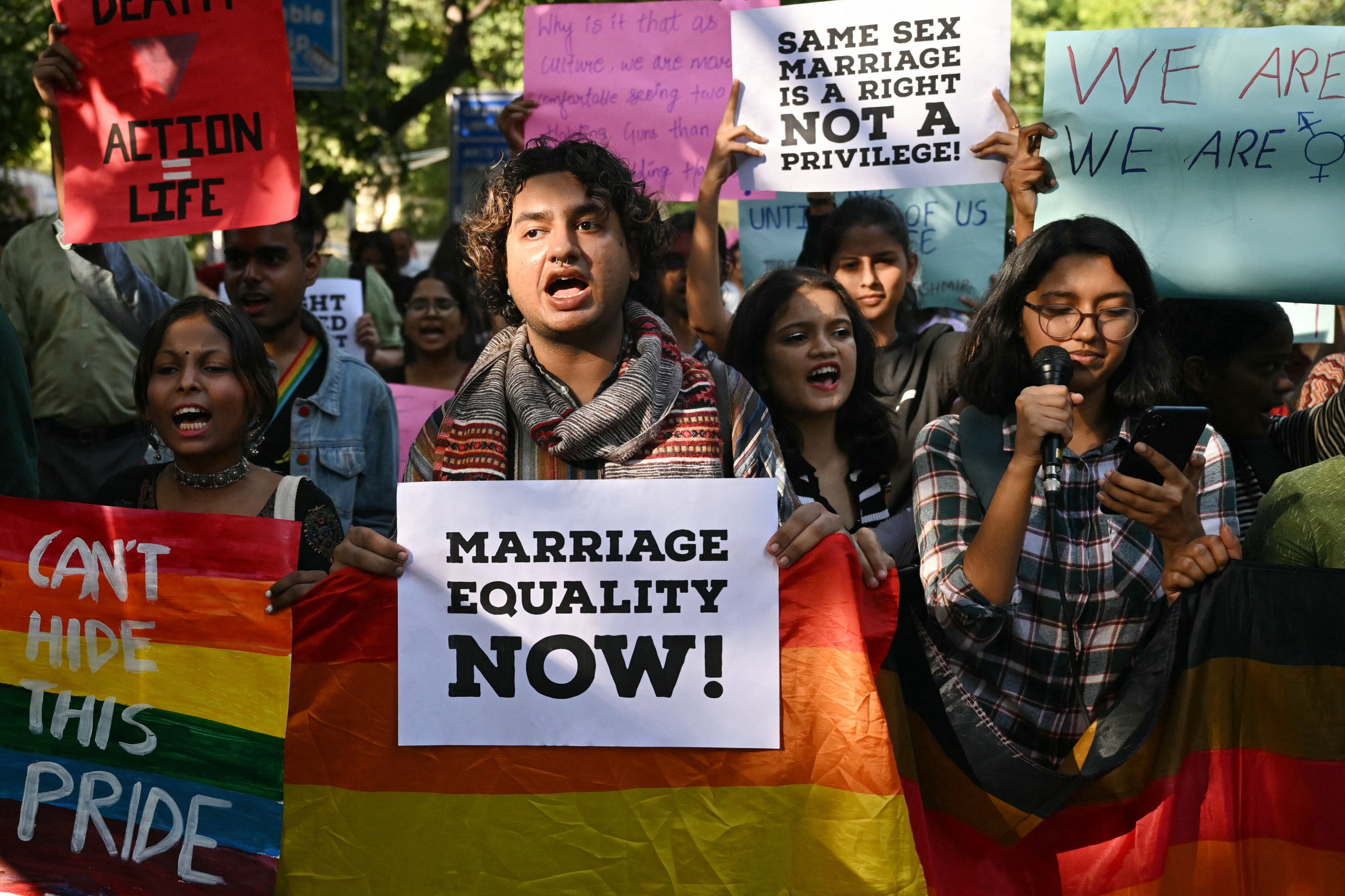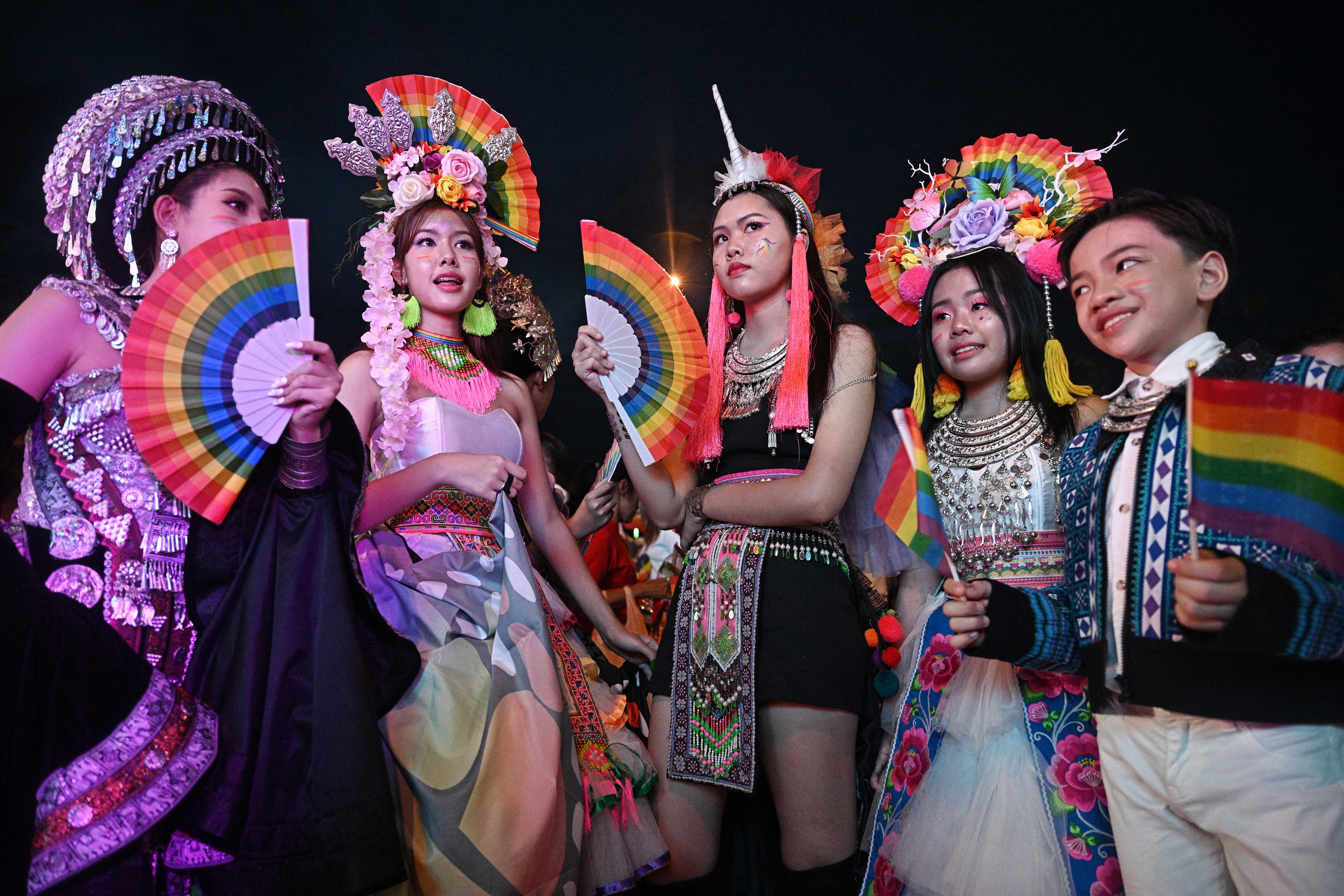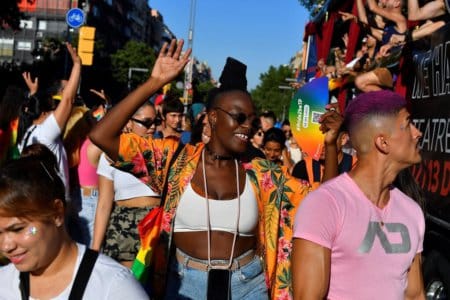
Women’s rights, equality, and same-sex marriages are now much more normalised compared to the past. LGBTQ+ lingo and drag terminology are part of everyday conversation now – just listen to the average Gen Z saying “slay” at least once a day.
The fire department are trying to show they’re supportive but I’m fully dying at the implication that we will simply just all burn pic.twitter.com/ufKq0m67BO
— Jazz ⧗ (@DerpSwan) May 13, 2023
But let’s be realistic — even if platforms like Instagram and LinkedIn add gender pronouns to user profiles and brands plaster rainbow flags all over their store, it doesn’t change the fact that these concepts are not accepted by everyone around the world.
For starters, it’s important to note that even with how times have changed, and people’s perceptions towards the LGBTQ+ community are much friendlier now, it’s not the same worldwide.
Of course, that’s rather obvious when you realise that only 37 countries have legalised same-sex marriage, with Taiwan being the latest addition and the first Asian country to do so.
Think about it: barely half a century ago, the American Psychiatric Association considered homosexuality to be a mental illness. It’s not far-fetched to imagine that there are still people who exist with that mindset, even in LGBTQ+-friendly countries.
On the other hand, nearly 70 countries continue to criminalise being LGBTQ+, according to the Council for Foreign Relations, including 12 countries where consensual same-sex relations can mean the death penalty.
It’s no wonder that many are still unfamiliar with the LGBTQ+ community in general or don’t even know what those words really mean.

LGBTQ+ is the universal term, but it’s not always the same across every language. Source: AFP
Happy Pride Month: LGBTQ+ lingo 101
In this day and age, most of us know what LGBTQ+ stands for. But did you know that there have been recent additions?
As a recap, this is what each letter means:
- L: Lesbian – a woman attracted to another woman.
- G: Gay – a man attracted to another man.
- B: Bisexual – someone who is attracted to both genders.
- T: Transgender – someone with a different gender identity than the one that they were born with.
- Q: Queer – used to describe sexual and gender identities other than straight and cisgender.
While the Q in LGBTQ+ stands for queer in most settings, it can also mean questioning. It’s suitable for those who are still exploring themselves and their interests but are certain they aren’t cisgender and/or straight.
Some older people tend to avoid using “queer” as the term used to have negative connotations. It was used as a slur in the late 1800s to describe gay men, but protestors began using the word in chants, going, “We’re here, we’re queer, get used to it!”
Fast forward to the late 2010s, younger LGBTQ+ Americans started reclaiming the word in a positive manner, embracing a shift towards fluidity in identity. Now, many from the community have added “I” and “A” to the term, which means intersex and asexual, respectively.
- I: Intersex – used to describe people who have genitals, chromosomes or reproductive organs that don’t fit into a male/female sex binary.
- A: Asexual – used to describe someone who does not experience sexual attraction toward individuals of any gender.
The reason most people add a plus sign to the term is also to encompass identities in the community that don’t fit into the other letters, such as:
- Pansexual: sexual, romantic, or emotional attraction towards people of all genders, or regardless of their sex or gender identity.
- Two-Spirited: refers to a person who identifies as having both a masculine and a feminine spirit and is used by some Indigenous people to describe their sexual, gender and/or spiritual identity.
To some, these terms are familiar, especially for younger people like Gen Z and Gen Alpha, who grew up around them.
This is why it can be somewhat of a shock when they meet someone unfamiliar with these terms and their significance.

Some countries like India frequently have protests and marches to demand for same-sex marriage rights. Source: AFP
The LGBTQ+ community may still be a foreign concept to foreign students
Some people had the privilege of growing up in a safe space where they could talk about sexuality, gender identity, and self-expression. But not everyone shares the same privilege, especially if they come from a country or religion that frowns upon – or outright criminalises – these topics.
This stark contrast is apparent in groups such as international students. Prechaya Chaogunha, an international student from Thailand, shared her thoughts about Malaysia, where she is currently pursuing her PhD.
“I come from Thailand, where people are encouraged to be open and embrace themselves in their own way. It’s colourful, beautiful and a part of everyone’s lives. But it’s a little different here in Malaysia,” says Chaogunha. “Here, it’s a little more rigid – people are much more aware of themselves here and tend to contain themselves a lot more. They don’t express themselves as much either.”
Imagine a student from a country that forbids homosexuality entering the US – they might be stunned by the local gay bar down the street from their university. Or perhaps an openly gay student could study abroad in a country that directly outlaws homosexuality, which may result in them having to hide their sexuality for fear of being ill-treated or even expelled. Yes, it has happened before.
In these instances, it’s wise to dial back and reflect. It’s not about any single party having to be open and educate themselves – it’s a two-way street. While one person has to listen and learn about a different culture, the other also has to learn that some people do not share the same privileges as they do.
Don’t be quick to jump and accuse someone of misgendering you or not respecting your sexuality. They simply may not know enough about it.
And before you say, “The Internet is free; just Google it.” Remember that there are a multitude of other reasons why someone may not share your knowledge and openness.
Here are some reasons why.

Some countries, like Thailand, have a very active LGBTQ+ community. Source: AFP
Country of origin
Some countries, like the US, have strong LGBTQ+ rights movements and open communities, while others have more conservative views and legal restrictions.
In some extreme cases, homosexuality or nonconformant gender expression can also be punished by corporal punishment, flogging, imprisonment or forced “conversion” therapy. In 2019, the Saudi Arabian government outright executed five men for engaging in same-sex intercourse.
So obviously, an international student coming from a country with less visibility or acceptance of LGBTQ+ identities might not be familiar with the terminology or the concept itself.
Upbringing
Being raised in a family that is accepting and celebrates LGBTQ+ identities can lead to a positive and inclusive view of the community. On the flip side, negative or prejudiced attitudes from family members and friends can create biases and misunderstandings about LGBTQ+ people.
Some children grew up in environments where if they spoke about gender identity or self-exploration, they would be ousted by society. Some families even go so far as to forbid their children from making friends with anyone who talks openly about LGBTQ+ lingo.

In Mandarin, the word for transgender is (跨性别, kùaxìngbié), which means “cutting across sex distinctions”. Source: AFP
Difference in language
Yes, yes, we know the global language is English. However, only 18.07% of the global population actually use it as their first language.
LGBTQ+ lingo is constantly evolving, and some of the terms may not have direct translations in other languages. Just look at how “queer” evolved from a slur into a more common-use term, for example. This can make it difficult for international students to understand conversations or written materials or lose out on context entirely.
Languages such as Finnish, Hungarian, Estonian, Turkish, Indonesian, Vietnamese, and more do not have grammatical genders at all. For example, spoken Mandarin Chinese has no way of differentiating gender; it is pronounced as “tā” regardless.
Limited exposure
There’s not much more to say about countries that criminalise the LGBTQ+ community when there is limited exposure, even in countries with growing LGBTQ+ acceptance.
Educational systems usually do not explicitly address topics such as sexual orientation and gender identity, so it’s not shocking that international students may be unfamiliar with them. They might not have had the opportunity or guidance to learn about these topics properly before coming to a more progressive country, especially if their country blocks access to relevant websites.
Religion
Many individuals reject LGBTQ+ concepts on religious grounds. For example, some Christians consider homosexuality an abomination, labelling it as a sin. It comes to the point where the imagined punishment for the defiance of God’s will is so severe it will lead to eternal damnation.
Thankfully, the Christian community has seen better times in recent years thanks to Pope Francis, who is by far one of the most favoured popes in history. The LGBTQ+ community has noted his tenure as pope for his warmer tones than those of his predecessors.
Upon his induction as pope in 2013, Pope Francis was asked about gay priests during an exchange with the press. His response was, “If they accept the Lord and have goodwill, who am I to judge them? They shouldn’t be marginalised. They are our brothers.”
Uncertainty
As mentioned above, there are many reasons that create a stigma about LGBTQ+ communities and identities, and some international students are aware of this.
They may worry about judgment or discrimination if they show interest or ask questions, especially when they’re new to the topic. This fear can make it difficult for them to learn more or connect with the LGBTQ+ community.
Perhaps some international students are still exploring unknown parts of themselves and are seeking a trustworthy source to confide in. Always remember to be kind rather than throw out accusations.










